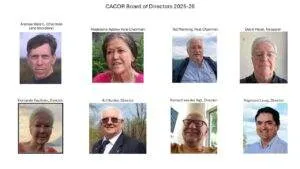
Andrew Welch, Chairman (and Secretary)
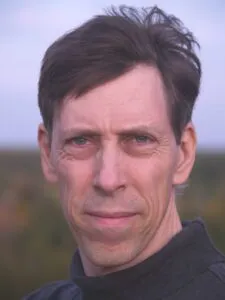 Andrew Welch is a speaker, researcher, and writer on the philosophical basis of human value systems and ecological economics. His first book, The Value Crisis, was published in 2014, with a sequel, Our Second Chance, published in 2022. His mission is to provide unique insights to global issues by combining heuristics and observations from multiple disciplines, and to communicate historical solutions using engaging narratives that are accessible to a wide general audience.
Andrew Welch is a speaker, researcher, and writer on the philosophical basis of human value systems and ecological economics. His first book, The Value Crisis, was published in 2014, with a sequel, Our Second Chance, published in 2022. His mission is to provide unique insights to global issues by combining heuristics and observations from multiple disciplines, and to communicate historical solutions using engaging narratives that are accessible to a wide general audience.
Andrew’s background is powerfully diverse, beginning with Hons. Math/Computer Science and Theatre at the University of Waterloo. For the past 20 years, he has been in demand as a skilled corporate facilitator, guiding intact teams through difficult challenges and transitions. In 2008, he created the WattPlot™ suite of software which monitors renewable energy systems at over a thousand sites worldwide. Andrew is an Emergency Response Team Site Manager (volunteer) with the Canadian Red Cross, deployed across Canada, and was a founding member of their National Disaster Management Evaluation Team. He also co-founded Transition Erin––a Transition Town movement in Erin, Ontario.
Ted Manning, Past Chairman
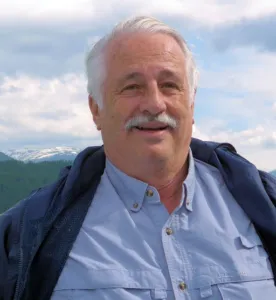
Dr. Ted Manning is President of Tourisk Inc., an international consulting firm based in Ottawa and providing integrated planning for heritage sites and tourism destinations, development of measures of sustainability, and accessibility and environmental management solutions worldwide.
His website is www.tourisk.com,
Dr. Manning has worked in more than 50 countries in the creation and implementation of improved methods for planning environmentally and culturally sensitive areas and reduction of the ecological and social footprint of human activities, particularly regarding tourism for the UN World Tourism Organization, World Wildlife Fund, and the UN Industrial Development Organization for its coastal development program in Africa. He has served as Executive Manager of Sustainable Tourism for Tourism Canada, Director of Sustainable Development for Canada’s Government Consulting Company, and Associate Director of Sustainable Development and Chief of Land Use Policy and Planning for Environment Canada. He has published 25 books and over 100 articles on sustainable development, tourism, wellbeing. and environmental management topics. He has also served as President of the Canadian Association of Geographers, a director of the Social Science Federation of Canada, and as Adjunct Professor of Geography and Environmental Studies at Carleton University. He is currently a full member of the International Club of Rome.
Madeleine Aubrey, Vice-Chairman
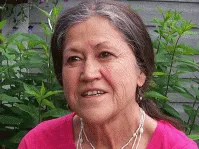 Madeleine Aubrey was a teacher at the elementary level, a part-time professor at the University of Ottawa at the Faculty of Education teaching pre-service training in the arts education and visual arts specialization courses for certified teachers. She created an education consulting business, Madarte Inc., which operated for over 15 years. It specialized in arts education: curriculum, research, policy and assessment. Most of her work in education, was done in French language institutions.
Madeleine Aubrey was a teacher at the elementary level, a part-time professor at the University of Ottawa at the Faculty of Education teaching pre-service training in the arts education and visual arts specialization courses for certified teachers. She created an education consulting business, Madarte Inc., which operated for over 15 years. It specialized in arts education: curriculum, research, policy and assessment. Most of her work in education, was done in French language institutions.
During her long career in arts education, Madeleine has been a visual arts specialist, an arts consultant and an education officer with the Ministry of Education of the province of Ontario, in charge of policy and programs at the elementary and secondary levels. She was a rapporteur for arts education consultations across Canada for the Canadian Commission for UNESCO and served as an art consultant for several television art activity series for TFO. In her work for the Ministry of Education she was responsible for policy, curriculum development, assessment, and the implementation of arts education at the elementary and secondary levels through in-service training workshops.
She is the founding president of l’Association francophone pour l’éducation artistique en Ontario (AFEAO) (1990), an association which represents Franco-Ontarian teachers, in drama, dance, visual arts, and music. She has had numerous leadership roles: organizing conference; serving on several Boards; chair or co-chairing symposiums and round tables; has been past chair of CACOR; is presently chair of CACOR’s Women’s Issues and Perspectives Committee; and over the past seven years, is a director in charge of membership, on the Board of Friends of the National Arts Centre Orchestra (FNACO). She has been a member of CACOR for 27 years.
Madeleine holds three university degrees, B.A.(Hons) in Visual Arts, B.Sc. in Recreology, a Master’s degree in Administration and Curriculum. She also holds other Ontario certificates in the arts (Specialization in Visual Arts) and in administration (School Principal Qualifications and Supervisory Officer Qualifications).
David Head, Treasurer
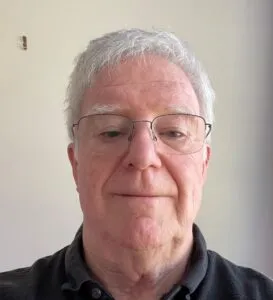
Dave obtained a PhD in chemistry at University of British Columbia. He spent 24 years as a federal civil servant working in a number of departments and agencies, including Atomic Energy of Canada, Indian and Northern Affairs, the National Research Council, and Industry Canada, reaching the level of Director General. Thereafter, in British Columbia he ran an industry agency that took back waste solvents, pesticides and gasoline. After a second retirement he managed a social agency in Penticton BC that supported people with a brain injury. Dave has had an extensive volunteer career, serving on more than a dozen boards of directors for organizations in Ottawa and BC with a wide variety of goals, from a Young Offender group home to a 12 bed hospice. Presently, he is a member of the board of directors for a child care organization in Ottawa.
Fernande Faulkner, Director
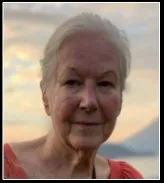
A native of Ottawa, Ms. Faulkner a sociologist, first did her graduate work on women’s roles and analyzed different models of family formation. She went on to be President of TRI-SC, a firm founded by two polling companies based in Montreal to analyze social and cultural trends in Canada. As an independent consultant she worked for the then Secretary of State and the Canadian International Development Agency. After conducting a number of environmental impact analyses she moved to analyzing the impact of the introduction of computers in organizations. Working mostly in the fields of technological tools in support of translation and office automation, she co-founded Socioscope in 1979 and worked for a year with the Department of Communication in 1980 to conduct a field trial and develop policies supporting the implementation of office automation. For CIDA, she worked on managing field projects online.
In 1992, she moved to New York for fifteen years, first working for the United Nations Development Programme (UNDP), and subsequently consulting with Erickson Faulkner Foster to the whole UN system where she worked on large scale organizational change and reform in the UN system. In this context a range of new competencies were identified and implemented as required by traditional organizations looking to revitalize themselves. She has worked with this focus with a number of UN agencies such as UNICEF, UNIFEM, UNDP, IFAD, and FAO. She has developed the competency profile for the UN coordinator system and carried out a large scale evaluation of the humanitarian sector.
Living in Vancouver since 2006, her focus has been on the integration of immigrants and refugees, working as a volunteer with institutions and programs of the YMCA and the ISS of BC. Dancing is her way to build community with indigenous, ageless, and all bodies groups.
Richard van der Jagt, Director
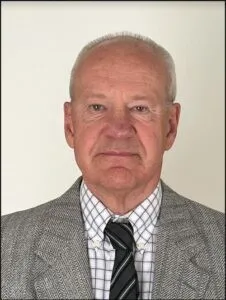
Dr. Richard van der Jagt has had a long standing interest in links between exposures to environmental toxins and disease. He founded and chaired the Canadian Leukemia Studies Group, completing Canada’s largest ever acute leukemia treatment study, and contributed to development of novel therapies for other environmentally-linked malignancies, lymphoma, and myeloma. He has supported many affected by malignancies associated with toxic exposures to pesticides, and recently lent his voice to further strengthen Bill S-5, amending the Canadian Environmental Protection Act.
Raymond Leury, Director
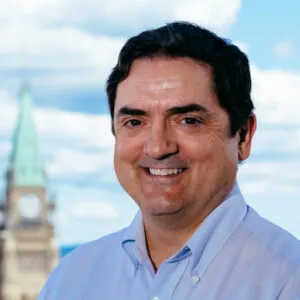 Raymond’s academic background includes several years spent studying pure sciences, focused on chemistry, at the University level. After obtaining a BCom in Management Information Systems and an MBA from the University of Ottawa, Raymond’s career was focused on strategic consulting and implementing change in the Information Technology space both as an internal specialist and as an external consultant. The combination of a technical and business backgrounds allows Raymond to analyse situations based on factors that run the spectrum from technical feasibility to user acceptance. Technical feasibility and business feasibility had to be aligned for any project to succeed. Every customer engagement included projects to implement technical changes that in many cases had significant impacts on the stakeholders and their day-to-day jobs. Technology implementations are straightforward. Getting organizations to embrace change is much more challenging.
Raymond’s academic background includes several years spent studying pure sciences, focused on chemistry, at the University level. After obtaining a BCom in Management Information Systems and an MBA from the University of Ottawa, Raymond’s career was focused on strategic consulting and implementing change in the Information Technology space both as an internal specialist and as an external consultant. The combination of a technical and business backgrounds allows Raymond to analyse situations based on factors that run the spectrum from technical feasibility to user acceptance. Technical feasibility and business feasibility had to be aligned for any project to succeed. Every customer engagement included projects to implement technical changes that in many cases had significant impacts on the stakeholders and their day-to-day jobs. Technology implementations are straightforward. Getting organizations to embrace change is much more challenging.
Raymond retired six years ago from an Information Technology career. Taking Al Gore’s Climate Reality Corps training in 2017 has reignited Raymond passions for the environment and addressing climate change in particular. As President of the Electric Vehicle Council of Ottawa (EVCO), with his team he has spearheaded a number of initiatives including the successful campaign to get OC Transpo to transition to a fully electric bus fleet. Raymond has spent much of his time researching and advocating for EVs of all sizes from light duty to medium and heavy-duty vehicles. Questions about energy and materials required for the electric transition led Raymond to study if and how it would be possible to develop and implement the necessary technology within the confines of the limited resources that we have on our one and only planet.
Since retirement, leveraging skills developed during his career, Raymond has focused on reducing GHGs by driving change in the areas of electrification including the transition to electric transportation.
Art Hunter, Director
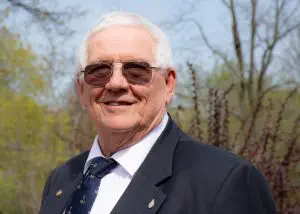
Art Hunter designs, operates and is constantly modernizing the Manotick Microgrid for the social and financial benefits explained in the presentation material. Survival and mitigation of consumption overshoot, and the climate catastrophe are top priorities. The Manotick Microgrid consists of rooftop solar arrays, home battery storage, a ground source heat pump, two electric Vehicles and a comprehensive command and control system for measurement and data processing driving appropriate actuators.
He has extensive experience in conducting research within universities, working with many companies as a consultant and as a researcher at the National Research Council of Canada including being the Canadian project manager for NASA’s Space Shuttle’s Canadarm.
He holds degrees from the Royal Military College (Hon B.Eng.) and from the University of London, Imperial College (Ph.D. hypersonic aerodynamics). He is very active in the Canadian Association for the Club of Rome.